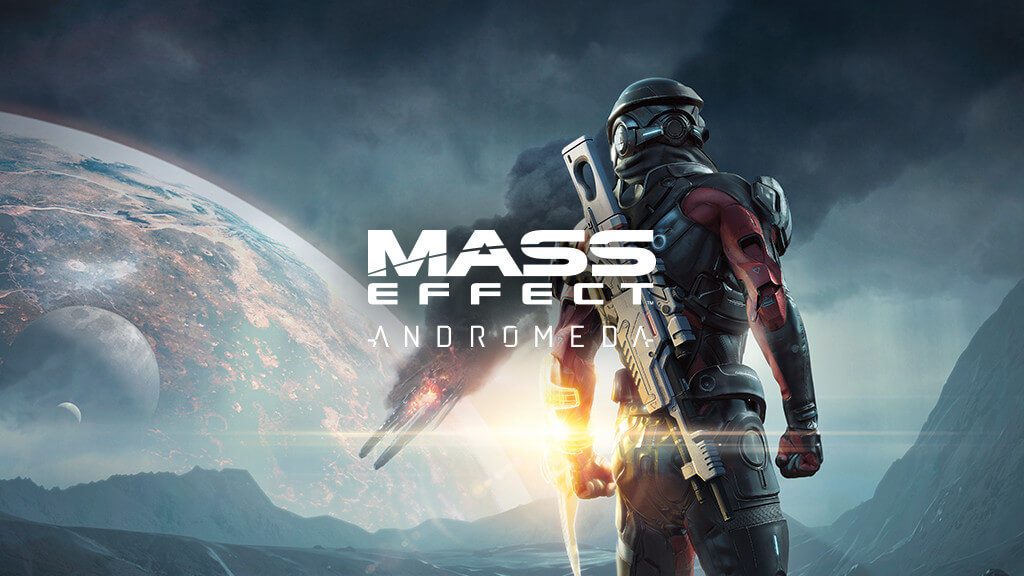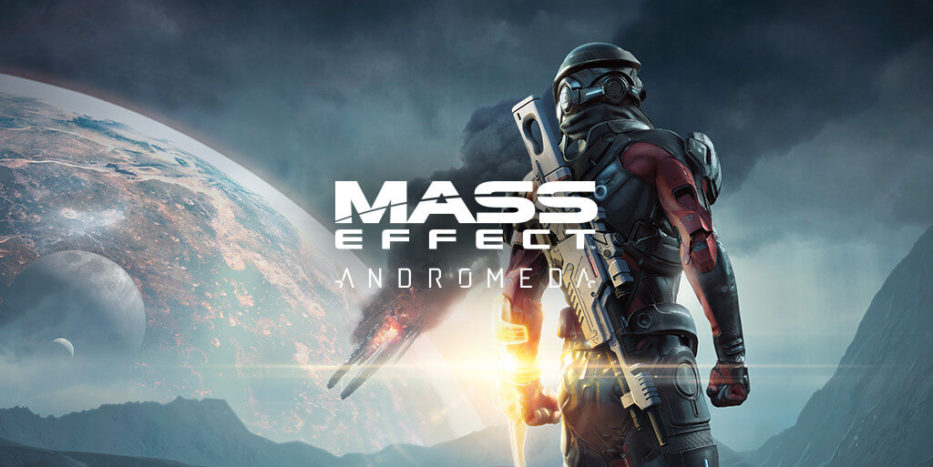 Sometimes you just need to get away from everything familiar to start fresh and find yourself. Move to a new city, make some new friends, embrace an unexpected hobby, apply for a new job, fake your death, assume a new identity. Then there are times where you need to ditch the small stuff and set up shop in a new galaxy after drifting through dark space for six hundred years. We’ve all been there.
Sometimes you just need to get away from everything familiar to start fresh and find yourself. Move to a new city, make some new friends, embrace an unexpected hobby, apply for a new job, fake your death, assume a new identity. Then there are times where you need to ditch the small stuff and set up shop in a new galaxy after drifting through dark space for six hundred years. We’ve all been there.
Mass Effect: Andromeda gives the former a whirl and gifts us with an entirely new galaxy to explore, light-years away from the events of the original trilogy. It strives to set a hopeful, frontiersman tone while retaining what was great about the previous games and jettisoning the chaff. Unfortunately, it manages to accumulate a fresh batch of chaff in the process that tends to mar an otherwise enjoyable experience.
If you’ve heard anything about Andromeda, there’s a good chance it was concerning the many complaints of poor animations, dialogue, and overall story quality. From personal experience, none of these are quite as atrocious as the vocal minority might lead you to believe. Some of the animations are perplexingly bad, but the instances of this are few. One of the biggest offenders is Addison, a human NPC who seems to be doing her very best “emotionally gutted android” impression. A recent patch has supposedly fixed her, but I cannot confirm or deny as I had already finished the game.
Dialogue is hit and miss. Not much of it is particularly inspired, but neither is it consistently cringe-worthy. It’s passable to the point of not being a distraction. As for the story, I think the problem might be a case of unwarranted expectations. The original Mass Effect trilogy was a high energy, high drama, special operative thriller. Andromeda doesn’t follow in its predecessors footsteps, it creates a new identity that focuses on exploration and increasing the viability of colonization efforts. The end result is a slower paced narrative, but by no means a poor one. I found the main storyline to be engaging.
Now we know that exploration is a big selling point for Andromeda, so it’s a shame that it manages to fail so completely with its planet scanning feature. The galactic map is dotted with solar systems that are packed with planets and various stellar anomalies to investigate, but none of them hold anything of real interest. Most planets have nothing at all on them, and those that do contain miniscule amounts of either money, resources, research, or experience. There are no side missions to be found, no secret locations to visit, and no unique items or knowledge to acquire. You could forgo scanning planets completely and be no worse off. It’s that negligible.
Speaking of research, Andromeda introduces the paired systems of research and crafting in this installment. I’m a total research junkie in just about any game, so I was initially excited about the prospect of cataloging everything shiny and/or gross in the galaxy. My glee was short-lived when I realized that research was only for crafting and that crafting was, again, largely negligible. You’re not allowed to craft anything stronger than your relative level and virtually anything you can craft can be easily found for free in loot crates, the exception being the somewhat underwhelming Remnant gear.
I suppose the incentive for crafting is that you can take normal items and enhance them with modifications during the process, but very few of these mods have any noticeable effect and some of them are decidedly worse than sticking with the default configuration. There’s so much missed opportunity here. Crafting could have been used to design truly unique weapons and armor, or even ship improvements. Research could have been vital to discerning enemy weaknesses or learning to navigate hostile environments. Andromeda chooses the most unimaginative form possible.
For those of you who are familiar with Dragon Age: Inquisition, you might notice it shares many similarities to Andromeda when it comes to game-play structure. This isn’t inherently bad, as there are noticeable improvements to the formula, but it hasn’t managed to shake off the issue of lackluster rewards. Inquisition was notorious for giving you long, arduous tasks and then showering you with mediocre loot for your troubles. This trend continues in Andromeda as well. There are no neat, unique items to find or any sort of hidden armor sets. What you see is what you get.
Across my ninety or so hours of play time I encountered more than a few bugs. Nothing game-breaking, but being constantly assailed by irritating distractions doesn’t help the games case. My issues ranged from the menu cursor showing up when it shouldn’t be and incorrect dialogue being spouted, to unresponsive controls in the Apex menu and side quests glitching out to the point where I had to roll back to a previous save. All of them had workarounds and the recent patch may have fixed these issues, but dealing with them so often was a chore.
At this point it probably sounds like I despise Andromeda, but the majority of my complaints are surface issues. Things that can be circumvented or ignored entirely without damaging the integrity of the core experience. When played purely for story and exploration, for the experience of wild and crazy subplots, Andromeda can shine.
The combat system helps in this endeavor as it’s one thing the developers pulled off exceptionally well. Battle controls are tight and responsive, and with a respectable amount of combat ability options there’s plenty of exciting ways to dispatch foes. Freeze them, burn them, shock, explode, pull, push, float, whatever you fancy.
The multiplayer element is simplistic and potentially fun. You and three other allied players take on waves of enemies while completing objectives around the map. Win and you receive money, experience, and mission credits for your separate online character. You then spend these currencies on randomized loot boxes in the hopes of getting better gear to survive harder difficulties. There’s not much substance, but if you’re a fan of cooperative wave survival then it’s not a bad place to spend your time.
Mass Effect: Andromeda has a fair amount of uninspired game-play elements that hold it back from true greatness, but past all the rough edges and vestigial bits there lies a truly enjoyable adventure. Perhaps the series will find stronger footing in its next installment. Until then, there’s a whole lot of galaxy to discover, Pathfinder.


